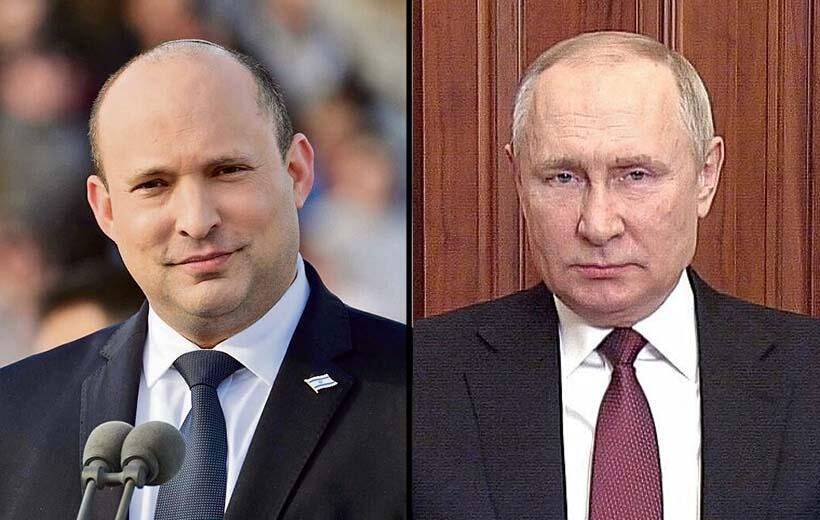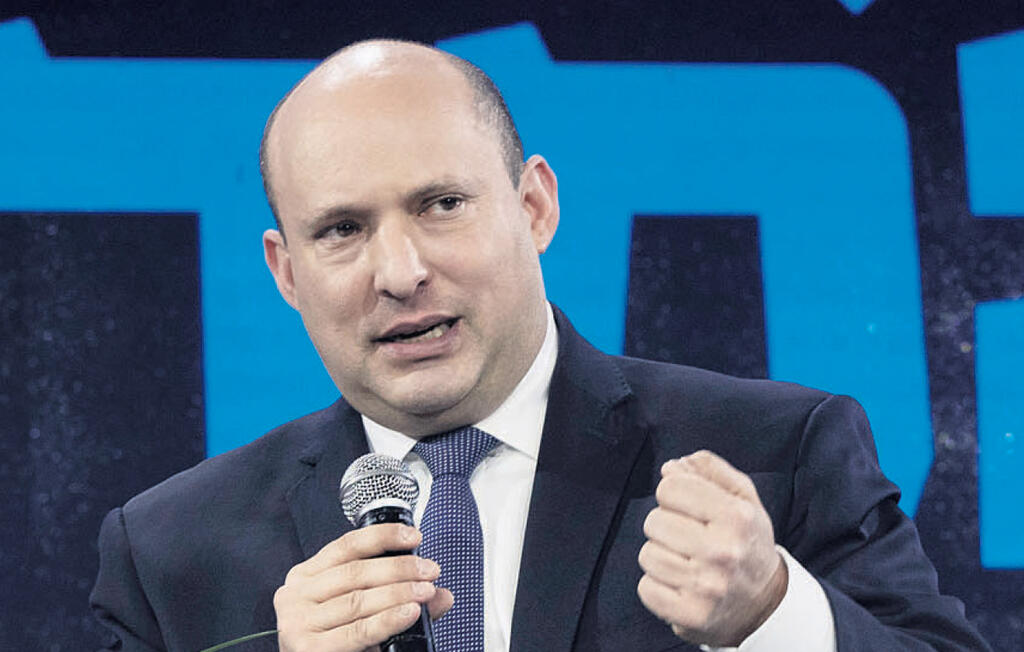Getting your Trinity Audio player ready...
Russian President Vladimir Putin discussed the conflict in Ukraine by telephone with Prime Minister Naftali Bennett on Wednesday, the Kremlin said in a statement.
In a phone call between the two, Bennett "shared his assessment of the situation around Ukraine, taking into account his contacts with leaders of a number of foreign countries, and expressed several ideas in relation to the ongoing negotiations," the statement said.
2 View gallery


Prime Minister Naftali Bennett and Russian President Vladimir Putin
(Photo: AP, GPO/Amos Ben Gershom)
Russian state media RIA reported that Putin shared with Bennett his assessment regarding the negotiations, and what he defines as a "special military operation" in Ukraine. The Russian president also extended his condolences to the families of victims killed in a deadly terrorist attack in Be'er Sheva and condemned the violence.
The two last spoke over a week ago during a meeting of the Israeli Cabinet. Bennett left the meeting in the middle to speak with the Russian leader on an hour and a half-long call. The Kremlin's readout of the call stated that Bennett told Putin he was in contact with several world leaders regarding mediation between the warring parties.
Speaking at Ynet's People of Israel conference, Bennett said on Monday: "At this stage, I am occupied with practical ways to help. Israelis should be proud of what we are doing for the civilians in Ukraine. From the first moments, we sent planes over with tonnes of medical equipment and medicine. We are helping in many aspects including in mediation efforts."
Bennett also said that there was progress in the negotiation between Russia and Ukraine over the past few weeks, but reserved that there were still major differences on some fundamental issues.
"At the time, Russia's demands were to dislodge Ukrainian President Volodymyr Zelensky and completely demilitarize Ukraine. These two things are no longer part of the demands. On the Ukrainian side, the requirement was to join NATO — which also was one of the reasons the whole invasion has begun in the first place — and that is also currently not on the table. That's why we can see some kind of progress. But like I said, there is still a long way," Bennett said.


